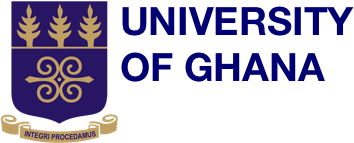OVERVIEW
Physiotherapy (PT), also known as Physical therapy , is one of the allied health professions that, by using mechanical force and movements (bio-mechanics or kinesiology), manual therapy, exercise therapy, and electrotherapy, remediates impairments and promotes mobility and function.
Physiotherapy is used to improve a patient’s quality of life through examination, diagnosis, prognosis, physical intervention, and patient education.
It is performed by physiotherapists (known as physical therapists). In addition to clinical practice, other activities encompassed in the physiotherapy profession include research, education, consultation and administration. Physiotherapy services may be provided as primary care treatment or alongside, or in conjunction with, other medical services.
AIMS AND OBJECTIVES
• Promote the health and well being of the individual and the general public/ society.
• Prevent impairments, activity limitations, and participation restriction in individuals at risk of altered movement behaviours due to health or medically related factors, socioeconomic stressors, and lifestyle factors
• Provide interventions to restore integrity of body systems essential to movement, maximise function and recuperation, minimise incapacity, and enhance the quality of life in individuals and groups of individuals with altered movement behaviours resulting from impairments, activity limitations and participation restriction
INDUSTRY/GLOBAL TRENDS
Worldwide there is a rising demand for physiotherapists. A number of factors account for this trend: the growing awareness of the role physiotherapy can play in enabling the physically challenged to lead productive lives; the increasingly sedentary urban lifestyles and lack of exercise with their associated health effects.
A growing number of employers use the expertise of physiotherapists to evaluate work sites, develop exercise programmes and teach safe work habits to employees with the view to reduce injuries and improve the physical wellbeing of employees.
ASSESSMENT
Students will be assessed on the basis of completed assignments, examinations, and competency skills required in physiotherapy . Physiotherapy also involves the science of rehabilitating patients recovering from general, orthopaedic and neurosurgery; trauma; injuries; chronic lung diseases; neurological diseases; childbirth; mental health problems and acute sports, workplace learning, or other methods as outlined in specific subject outlines.
CAREER PROSPECTS
Graduates of physiotherapy work in hospitals, health centres, clinics, schools, community centres and private practice in areas such as:
• Acute trauma
• Cardiopulmonary rehabilitation
• Child health • Community health
• Mental health
• Musculoskeletal therapy / orthopaedics
• Neurological rehabilitation
• Older adults’ health
• Sports medicine
ENTRY REQUIREMENTS
General Admission Further to the general regulations regarding admission into the University of Ghana, admission to the School of Biomedical and Allied Health Sciences for Bachelor of Science (BSc.) degree programme shall be based on pure science courses such as:
• Elective Mathematics
• Biology
• Physics
• Chemistry
Specific Admission
Admission into BSc Physiotherapy degree programme requires the following three compulsory and non-negotiable subjects for entry: injuries. Physiotherapists apply assessment skills, clinical reasoning and treatment to anyone with physical problems and chronic pain that affects their movement, function and quality of life.
• Biology
• Physics
• Elective Mathematics
• Chemistry
Candidates who have appropriate passes in Mathematics or Core Mathematics, English Language, Chemistry, Physics and Biology shall be admitted directly into the first year (Level 100) of the 4-year undergraduate degree programme.
Candidates with Bachelor’s degree in Biological or Physical Sciences from a recognized University may be considered for admission on the recommendation of a special committee appointed by the Dean.
The special committee shall vet transcript of the candidate as well as course contents of the degrees with a view to determining suitability of degrees of previous training and make appropriate recommendations that shall include the levels of admission, to the Dean.
Admissions under this section may be subject to such conditions as may be approved by the Admissions Board. To complete the requirements for the programme, all students must:
1. Cover a total of number of 137 credit hours for didactic courses
2. Complete a minimum of 1200 clinical hours during the four-year programme
3. Complete 12 months of internship/ national service programme
4. Accomplish a pass mark of 60% for all the written and practical examinations.
5. Submit a dissertation on topic relevant to physiotherapy practice areas








